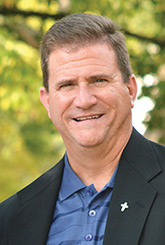Bivocational ministry may be the new normal. More and more, congregations and ministers are seeing the advantages of this style of ministry.
For some, bivocational ministry is born of financial necessity; for others, it is a deliberate commitment without regard to financial resources.
Charles Jenkins, 82, is a bivocational pastor and a consultant to the South Carolina Baptist Convention for bivocational ministry. He has served three churches as a fully funded pastor during his ministry, but he has also worked for IBM and other companies and pastored churches at the same time. He is currently serving as the pastor of Memorial Baptist Church in Aiken.
Jenkins and his wife, Mary, have been trying to compile accurate statistics on bivocational Southern Baptist ministers in South Carolina. The task has been difficult, but they have identified more than 450 bivocational pastors so far and believe the number will exceed 600. The couple is working on a book about bivocational ministry from the joint perspectives of husband and wife.
James Wiles is also a bivocational minister, serving as pastor of Hunt’s Memorial Baptist Church in Pickens while working as general manager for General Systems Inc., a faith-based company that gives him opportunities to serve Christ both on and off the job.
Both men are strong advocates for bivocational service. “Bivocational ministry is a mode for ministry that is good in and of itself,” said Jenkins. “Some churches are getting into it for financial reasons.” As older congregations dwindle and offerings decrease, hiring a bivocational minister often becomes the only way for the church to continue.
That is not always the case, however. Jenkins observes that “a lot of guys are going to seminary who have skills and passions [for a non-church vocation], but they also have a passion and call to serve God.” In those situations, bivocational ministry is often the result.
Wiles said he grew up in church but was never born again. He was saved after he was married and had been in secular work for many years. “I was saved on Oct. 14, 1994,” he said. “My wife, Wanda, was instrumental in leading me to Christ. After I was saved, I felt like I needed to take some seminary classes to learn more about God’s Word.
“I became active in church and began telling my wife that I felt like God wanted me to serve somewhere. In 2008, I shared with her that God was calling me to serve in churches. It became a burning desire. I felt like I could not continue to go on in life and not do what God called me to do.”
He was called as pastor of Hunt’s Memorial Baptist Church in 2008 and continues in that position today. “I do not do what I do because I need a check,” he said. “It is nice to have that, and it helps tremendously, but we tithe a great deal of that back to our church. I am there because God has called me to be there.”
Wiles emphasized that his nearly 40 years in business have helped him develop skills and talents that serve him well in the work of the church.
Both men agree that many ministers fresh out of seminary find themselves leading a church without knowing it is a troubled congregation. Jenkins added, “Typically, they end up getting hurt. In a few years, they are out of the ministry.” Financial pressures can then create a crisis for a young couple, especially if the minister has no other source of income.
A bivocational pastor does not face that type of financial strain, because he has a full-time job. “If the church doesn’t want to follow the guidelines of God’s Word, or if they think I’m not the right person, that’s fine,” said Wiles. “I would pray they find the right person. But my bills would be paid.”
Both men point out that bivocational ministry requires church members to step up and do more of the work of the ministry, which they see as the New Testament model regardless of whether a pastor is fully funded or is bivocational. “The mindset of the congregation has to change,” said Wiles. “People have to start asking, how can I serve? If we can get church members thinking that way, we can multiply the number of people serving. It broadens your potential for ministry.”
Jenkins and Wiles both cite Acts 6, where the apostles in the early church decided to devote themselves to the ministry of the Word and prayer while seven men, full of the Holy Spirit and wisdom, were chosen to minister to the needs of the members (in that day, the widows in distress).
While any pastor does more than preach and teach, both men emphasized that this is their top duty. Their strategy for ministry is Ephesians 4:11-13, where pastors are called to equip the saints for the work of ministry. “I could not do it all myself,” said Wiles. “Our deacons have stepped up, and we have had others to step up with visitation and other things.”
Jenkins said there seems to be a tendency in some churches for lay people to refrain from service because they feel that is what they pay the pastoral staff to do. “But if you are bivocational, you can say that someone will have to step up,” he said. “It doesn’t look like you are simply trying to get someone to do your job.”
Another obvious asset in having bivocational ministers is that more of the church’s money is freed up for missions and ministry, and less is used for compensation. Generally, when the pastor and staff are funded as full-time positions, staff compensation is a major portion of a church’s budget (and median church budgets in American congregations have been decreasing since 2010).
While neither Jenkins nor Wiles discredit the value of churches employing fully funded ministers, they point out that a church served by a bivocational pastor can grow in all facets of ministry. Both say some of the best preachers in the convention are bivocational, but pastors who are not fully funded are rarely if ever asked to speak at denominational events.
When Wiles began serving at Hunt’s Memorial, the church ran about 35 in worship and had three youth. Today, the church has between 90 and 100 in worship and 40-45 students on Wednesday nights.
“I am the only paid staff member,” he said, “and my wife and other couples direct the youth ministry. I think it is important that people understand you can be effective in your community and not have 20 paid staff members.”
Jenkins said that while he was working with IBM, a church asked him to do some supply preaching for them. The church building had been destroyed by fire, and members could not afford to rebuild and also pay a fully funded pastor. Jenkins ended up staying as the bivocational pastor for 20 years.
“The sky opened up for me, and I found that bivocational ministry was ideal for me,” he said. “I could continue to do what I was doing — and still do what I was called to do.”
Jenkins sees “a new wave, a tidal shift,” taking place among churches. “I see coming into fruition what I have believed for over 30 years,” he said. “I believe bivocational ministry is the wave of the future.”



